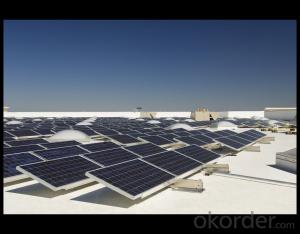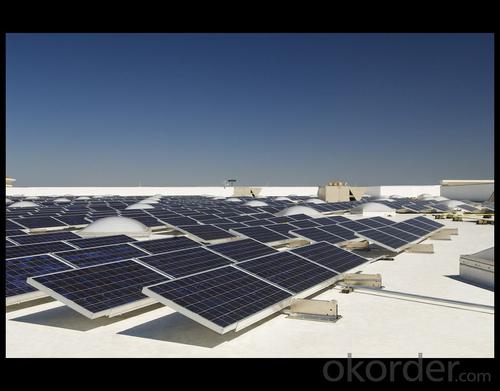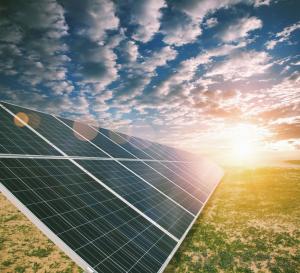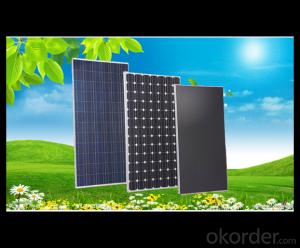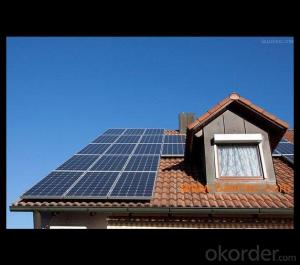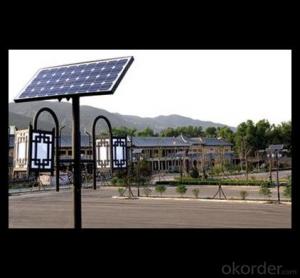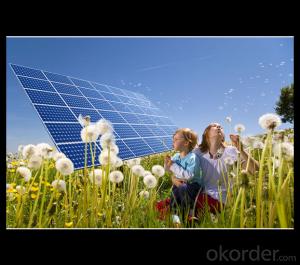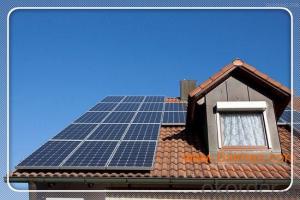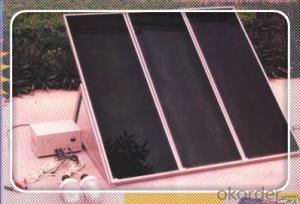Solar Panels for Sale Amazon - 320W Direct Factory Sale Price 260-320Watt Solar Panels
- Loading Port:
- China main port
- Payment Terms:
- TT OR LC
- Min Order Qty:
- 10000 watt
- Supply Capability:
- 100000 watt/month
OKorder Service Pledge
OKorder Financial Service
You Might Also Like
Specification
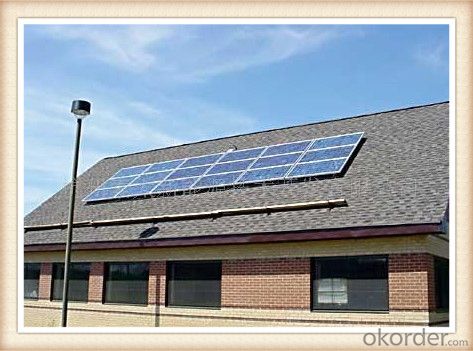
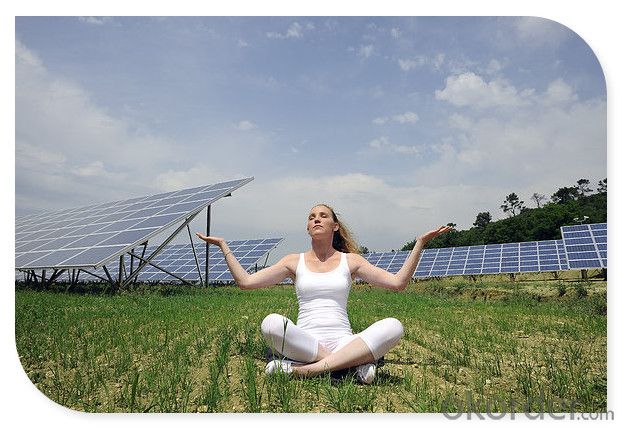
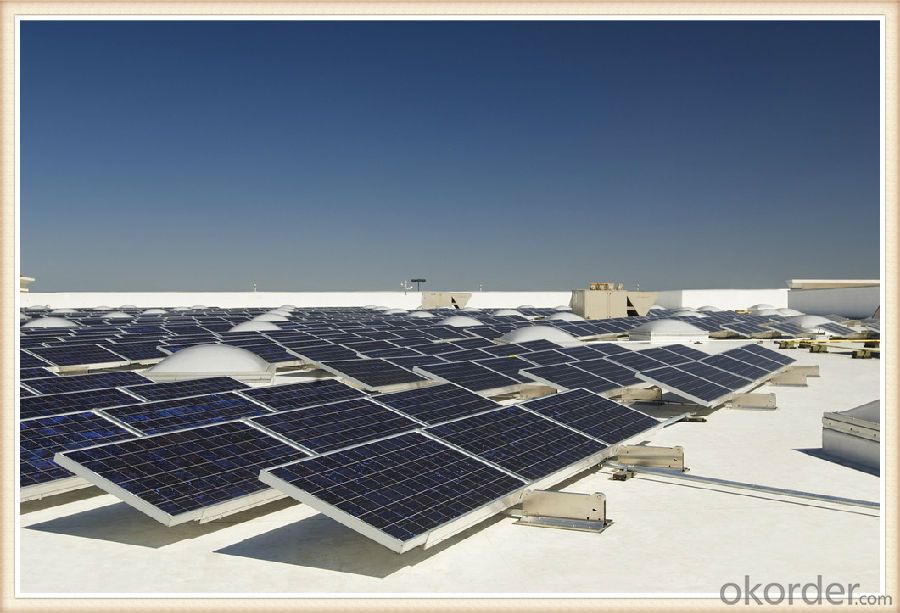
Solar Module Introduction
Solar modules use light energy (photons) from the sun to generate electricity through the photovoltaic effect. The majority of modules use wafer-based crystalline silicon cells or thin-film cells based on cadmium telluride or silicon. The structural (load carrying) member of a module can either be the top layer or the back layer. Cells must also be protected from mechanical damage and moisture. Most solar modules are rigid, but semi-flexible ones are available, based on thin-film cells. These early solar modules were first used in space in 1958.
Electrical connections are made in series to achieve a desired output voltage and/or in parallel to provide a desired current capability. The conducting wires that take the current off the modules may contain silver, copper or other non-magnetic conductive transition metals. The cells must be connected electrically to one another and to the rest of the system. Externally, popular terrestrial usage photovoltaic modules use MC3 (older) or MC4 connectors to facilitate easy weatherproof connections to the rest of the system.
Specification
Model Type | |
Peak Power-Pmax(W) | 5-200W |
Open Circuit Voltage-Voc(V) | 44.2 |
Maximum Power Voltage-Vmp(V) | 36 |
Short Circuit Current-Isc(A) | 5.4 |
Maximum Power Current-Imp(A) | 5 |
Maximum System Voltage | 1000V DC |
Maximum Series Fuse Rating | 10A |
Power Tolerance | -1~+3% |
Temperature Coefficients of Pmax | -0.45%/℃ |
Temperature Coefficients of Voc | -0.348%/℃ |
Temperature Coefficients of Isc | 0.031%/℃ |
Nominal Operating Cell Temperature | 44.5±2℃ |
Standard Testing Condition(STC) | Irradiance:1000W/m²;Temperature:25℃;AM=1.5 |
Qualification Test Parameters | |
Operating Temperature | -40℃~+85℃ |
Storage Temperature | -40℃~+85℃ |
Pressure Bearing | ≥5400Pascal/m² |
Wind Bearing | ≥5400Pascal/m² |
Mechanical Characteristics | |
Cell Size | Mono 125*125mm±0.5 |
No.of Cells | 72pcs(6*12) |
Dimension | 1580*808*40mm |
Weight | 15.5Kg |
Glass | 3.2mm High Transmission,Low Iron |
Frame | Anodized Aluminum Alloy |
Junction Box | IP65Rated |
Internal Diodes | 3 Bypass Diodes |
Cable | 1*4.0mm² Length 900mm |
Images
Packing & Shipping:
We have rich experience on how to pack the panels to make sure the safety on shipment when it arrives at the destination.
The normal size is packed by 25pcs/ carton / pallet. Paper carton for FCL shipping and wood carton for LCL shipping.
Features
1.High reliability with guaranteed -3% to +5% power output tolerance, ensuring return on investment
2.High conversion efficiency based on leading innovative photovoltaic technologies
3.Withstands high wind-pressure and snow load, and extreme temperature variations
4.Attractive appearanceUnique frame design, high mechanical strength, and easy Installation
Warranty:
For c-Si panel: 25years output warranty for no less than 80% of performance, 10 years output warranty for no less than 90% of performance. Free from material and workmanship defects within 5 years.
For a-Si panel: 20 years output warranty for no less than 80% of performance, 10 years output warranty for no less than 90% of performance. Free from material and workmanship defects within 2 years.
•100% product quality protection
•100% on-time shipment protection
•100% payment protection for your covered amount
FAQ:
(1)What price for each watt?
It depends on the quantity, delivery date and payment terms.
(2)What is your size for each module? Can you tell me the Parameter of your module?
We have different series of panels in different output, both c-Si and a-Si. Please take the specification sheet for your reference.
(3)Can you provide the peripheral products of the solar panels, such as the battery, controller, and inverter? If so, can you tell me how do they match each other?
Actually we are only manufacturer of solar panels, but we could try to source them for you in China if you need. We could provide you an optimal system design to instruct you how to install.
(4)Do you have the CE, TUV, UL Certification?
We’ve already passed all the tests, and any certificate is available.
(5)Have you ever sold your products to companies in my country?
Of course, we have customers in all general PV markets, but I think we should expand our market share along with the market growth.
(6)When did your company set up? You are a new company, how can I believe your quality?
We entered into Solar PV industry in 2005, now we have several plants in manufacturing of a-Si and c-Si panels, and our capacity is 220MW per year. Till now we have already passed all the tests by authorized laboratories, e.g. TUV, VDE, UL.
(7)Can you help us install the module if we cooperate with you?
We haven’t entered into installation sector, but we have the plan in near future.
(8) How do you pack your products?
We have rich experience on how to pack the panels to make sure the safety on shipment when it arrives at the destination.
(9) Can you do OEM for us?
Yes, we can.
(10)Can we visit your factory?
Surely, I will arrange the trip basing on your business schedule.
- Q: in a solar panel, i know that the electrons are knocked loose and used as energy, what happens to the protons?
- silicon based photovoltaic cells used some boron as dopant. i dont understand if that helps supress proton pastime, the way they be conscious boron on supressing run away nuclear reaction.... im clueless as you
- Q: Can cold light make solar panels power
- Solar power generation There are two ways of solar power generation, one is the light - heat - electricity conversion, the other is the optical - electrical direct conversion.
- Q: Can solar panels be used for powering a research facility or laboratory?
- Yes, solar panels can be used to power a research facility or laboratory. Solar panels convert sunlight into electricity, providing a sustainable and renewable source of energy. By harnessing the power of the sun, solar panels can generate enough electricity to meet the energy demands of various equipment and appliances used in research facilities and laboratories. Additionally, solar panels can be combined with energy storage systems to ensure continuous power supply even when sunlight is not available.
- Q: When I make a solar panel, what do I use to store the energy. For example I am going to make a solar panel to power my lights in my room. But I dont want the lights only to come on when the sun is out because that would be very pointless. So... Do I use the panels to charge something like a car battery and then run wires from the battery to an extension chord which will go to a surge protector? It sounds awesome, but I have to put it all together. The help is very appreciated. Thank you guys.
- Let us know when and where you'll try to make your solar panels so that we can enjoy the fireworks from a safe distance.
- Q: We've been considering solar panels for a while now, and we'd like to know a little more about them. Please answer to the best of your knowledge. Thanks.
- It is definitely worth doing your homework to evaluate how much you electricity you want to obtain, what you location will allow, and the availability of state and federal tax credits. I suggest reading about it in a book or e-book. Check out the referenced source on solar calculator for cost and size detailed information, it's fun and informative.
- Q: Can solar panels be used for charging batteries?
- Yes, solar panels can be used for charging batteries. Solar panels convert sunlight into electricity, which can be used to charge batteries and store energy for later use. This process is commonly used in off-grid systems or to power portable devices and vehicles.
- Q: hey, Im going into my senior year at high school and after that will be moving to Pennsylvania where my family has a house on ten acres and I will be going to college there and living all year around. My father wants to build a huge barn for our cars and other stuff like tools, I mentioned too him what about solar panels on the roof to power maybe the house and barn. Would this be a good Idea? Where would be the best place to look into getting solar panels be? Thanks for anyones help!
- This is a site that can help you estimate the size and number of panels that will power what you intend to provide for. There are plenty of sites selling the panels, so compare prices. Also, check whether your state is offering the rebate like the state of CA is and what the restrictions, terms and conditions are. Even with the rebates they are very costly, so be certain to calculate the pay off period for your application to see whether it is a cost efficient option for your energy usage.
- Q: Can solar panels be used to power a sports car?
- Yes, solar panels can be used to power a sports car. By installing solar panels on the vehicle, the sun's energy can be harnessed and converted into electricity to charge the car's battery, potentially extending its range. This technology is still in development, but several concepts and prototypes have been created, showing the potential for solar-powered sports cars in the future.
- Q: Can solar panels be installed on streetlights?
- Yes, solar panels can be installed on streetlights. This allows the streetlights to generate their own electricity from sunlight, reducing reliance on the electrical grid and promoting sustainability.
- Q: Due to erratic power cuts in my area I want to make up by using a 30watt solar panel. My decoder is 30watt but my TV is 70W. I need something small. I don't have problem with sound. Just picture.
- Do what we do when power is cut (although we have very reliable power - we loose as much as 2 hours a year), is go Amish. That is go without powered technology. Now, for you, you need more than a solar panel (and likely more than 30W, but that is a start) - you need a battery or set of batteries to store the collected power. 20Ah might do. You need an inverter to power things. For that, likely a 300W will do. For a TV, go shopping, and look at the labels on the back of the TVs. I just bought a 24 TV rated at 40W. If you get a 9 LED TV, it may be likely you can run that directly from battery, for many have separate DC brick supplies. With those, you can make a cable to power it directly from a 2V or so battery, if the supply can make 2 to 5V. Depending on your provider, you may be able to get a mini-decoder which uses a separate brick or wall supply, which means the decoder likely can be directly battery powered. Such a decoder may draw less than 20W.
Send your message to us
Solar Panels for Sale Amazon - 320W Direct Factory Sale Price 260-320Watt Solar Panels
- Loading Port:
- China main port
- Payment Terms:
- TT OR LC
- Min Order Qty:
- 10000 watt
- Supply Capability:
- 100000 watt/month
OKorder Service Pledge
OKorder Financial Service
Similar products
Hot products
Hot Searches
